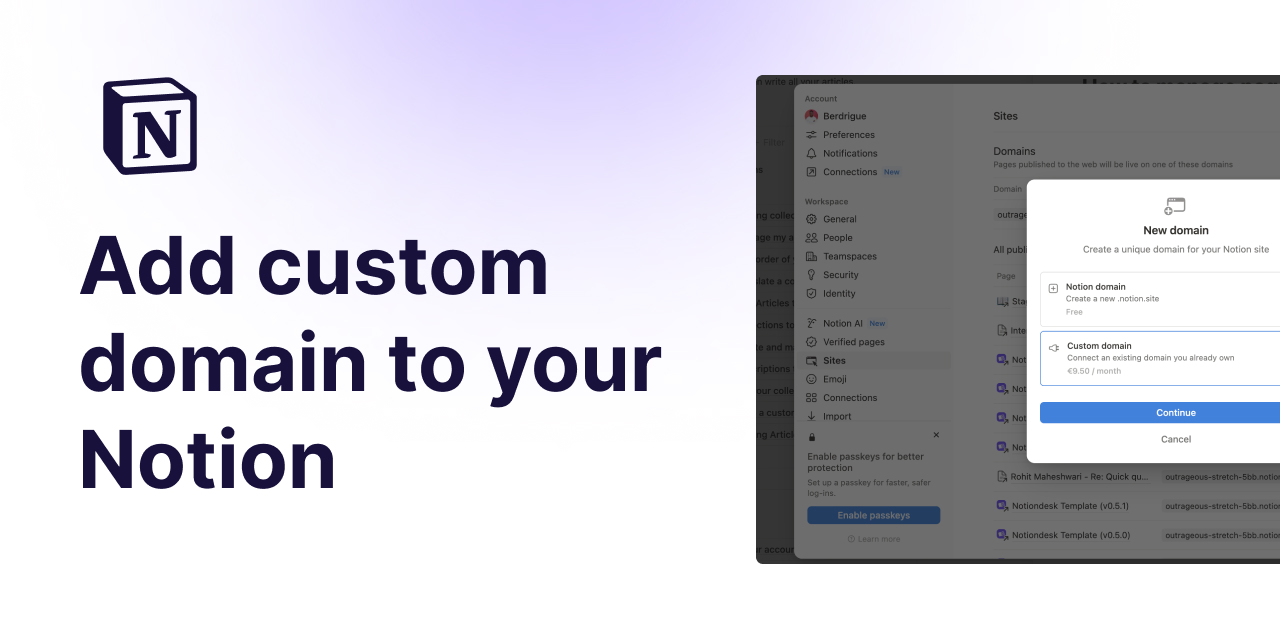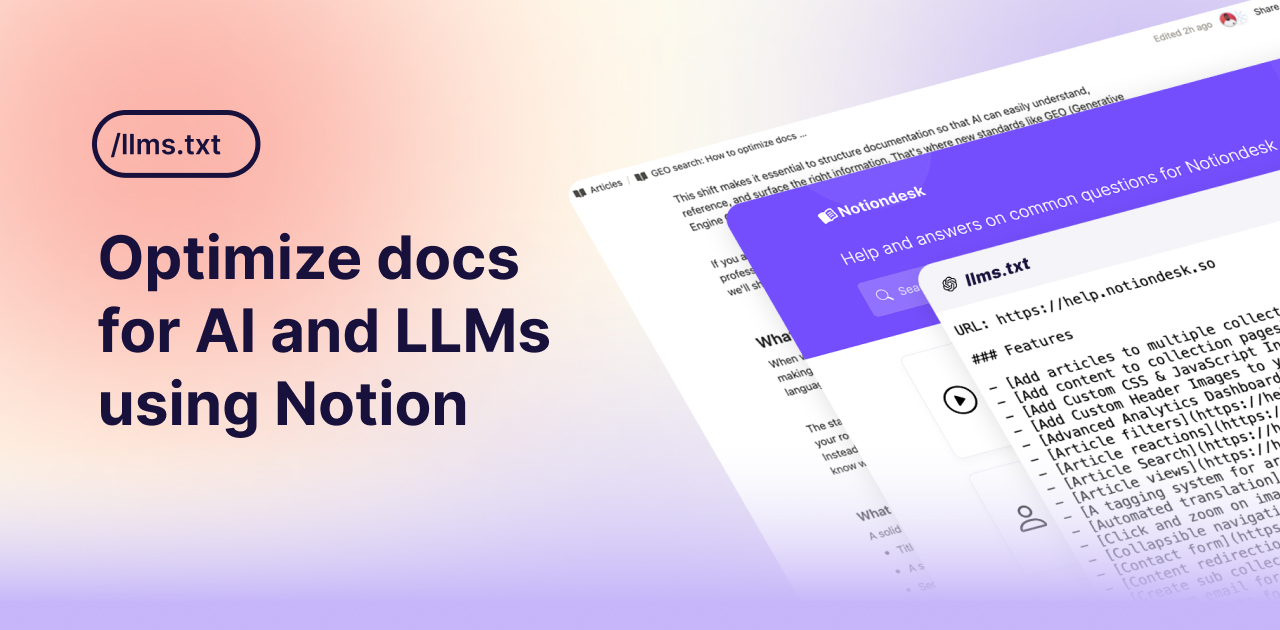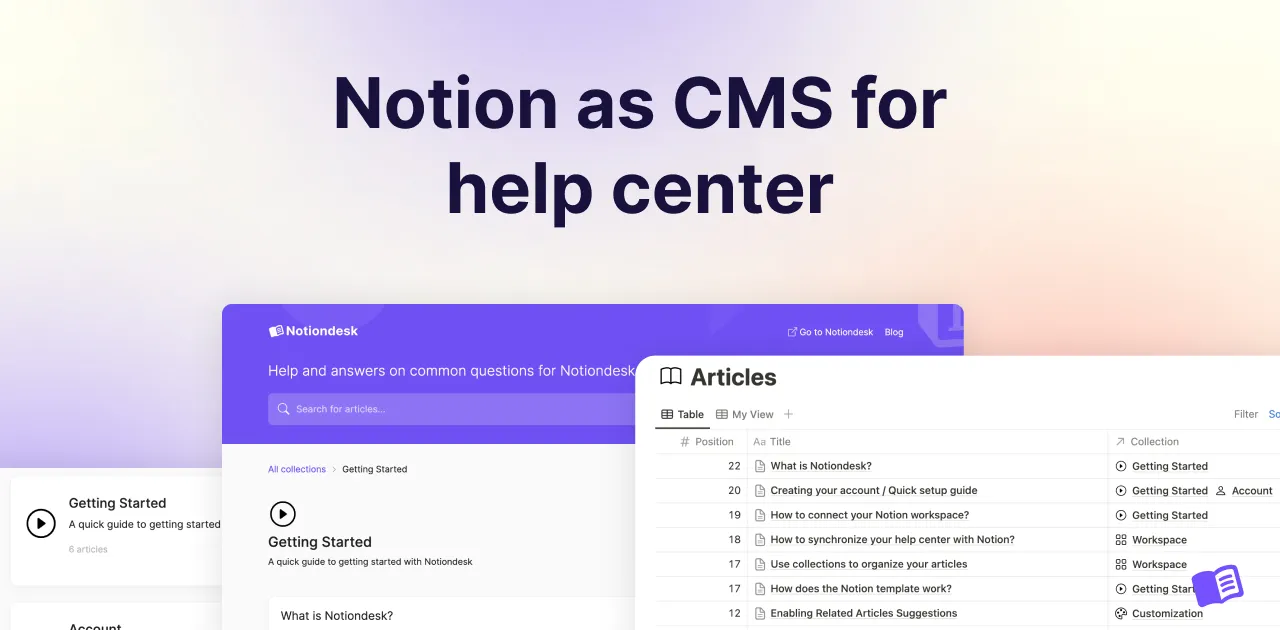Using Notion to build a website, share a portfolio, or publish documentation has become increasingly popular thanks to its simplicity and flexibility. But while the default Notion domain (yourname.notion.site) is functional, it doesn't convey the same professionalism or brand identity as a custom domain.
In this article, we'll walk you through everything you need to know to connect a custom domain to your Notion page. Whether you're building a personal portfolio, or sharing public documentation, setting up a custom domain will help you look more credible, improve your SEO, and make your site feel truly yours.
Table of contents
- Why use a custom domain with Notion
- Notion domain vs. custom domain
- Cost of using a custom domain in Notion
- Step-by-step guide to add a custom domain to your Notion page
- 3. Verify your domain connection
- Turn your Notion content into a complete help center
Why use a custom domain with Notion
Using a custom domain for your Notion page isn't just a technical upgrade, it's a strategic move that adds credibility and polish to your online presence. Here's why it matters:
1. Build credibility and trust
A branded domain like www.yourname.com instantly signals professionalism. It tells visitors you're serious about your work, whether it's a resume, portfolio, or documentation site
2. Strengthen your brand identity
A custom domain aligns your Notion site with your personal or business brand. It creates consistency across your online presence, from email to social media to your site
3. Improve SEO and discoverability
Search engines like Google favor clean, relevant domain names. A custom domain gives you more control over your site's visibility and helps with indexing
4. Create a better user experience
A memorable domain is easier to share, looks cleaner in links, and gives users confidence in the source of the content they're accessing
Notion domain vs. custom domain
When you publish a page with Notion, it's automatically hosted on a Notion-branded URL that looks like "https://yournotionworkspacename.notion.site/page-title"
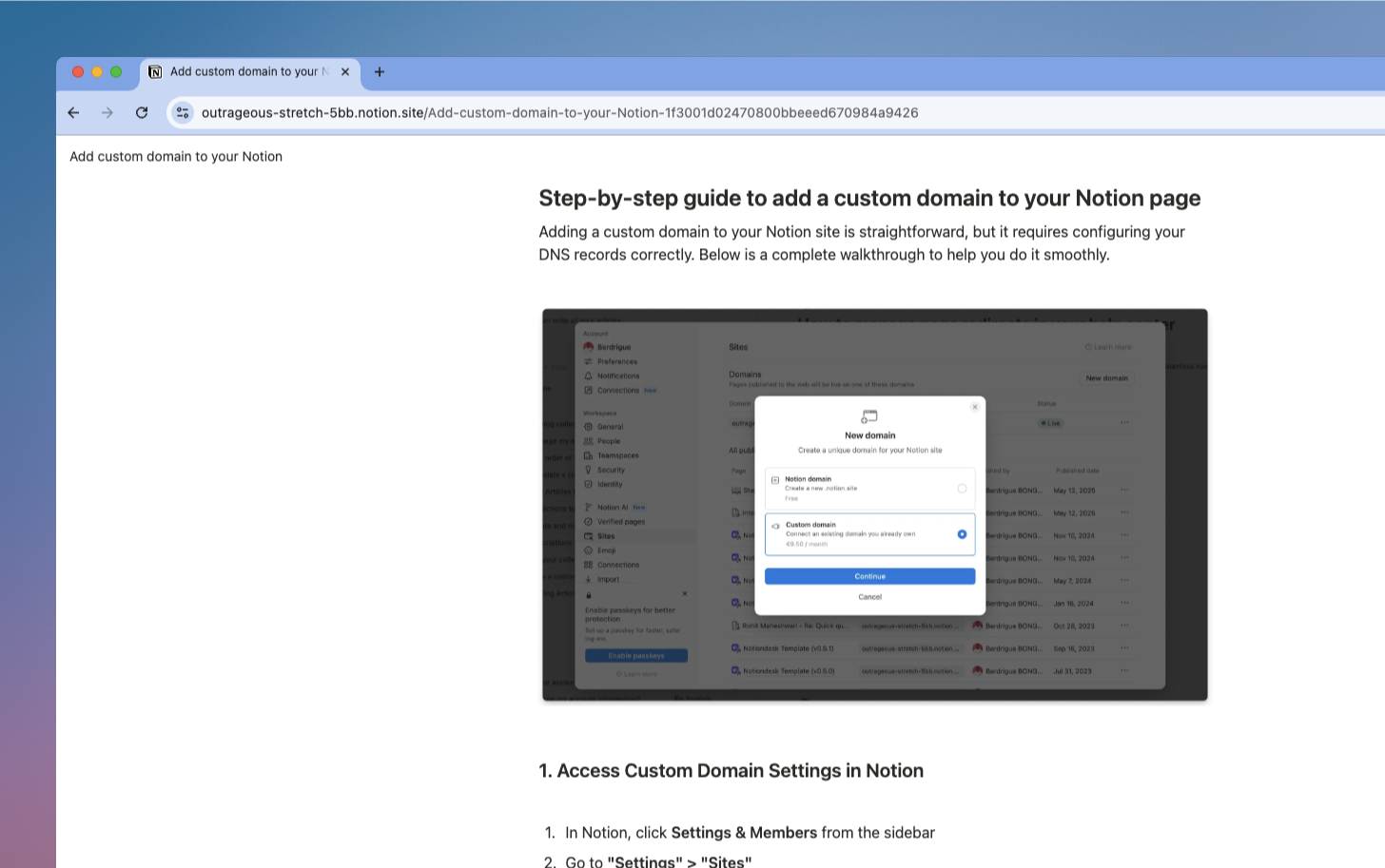
While functional, this type of URL:
- Includes the "notion.site" branding
- Can look unprofessional for resumes, personal sites, or client-facing documentation
- Is harder to remember or promote compared to a branded domain
With a custom domain, your site becomes "https://www.yourbrand.com/page-title".
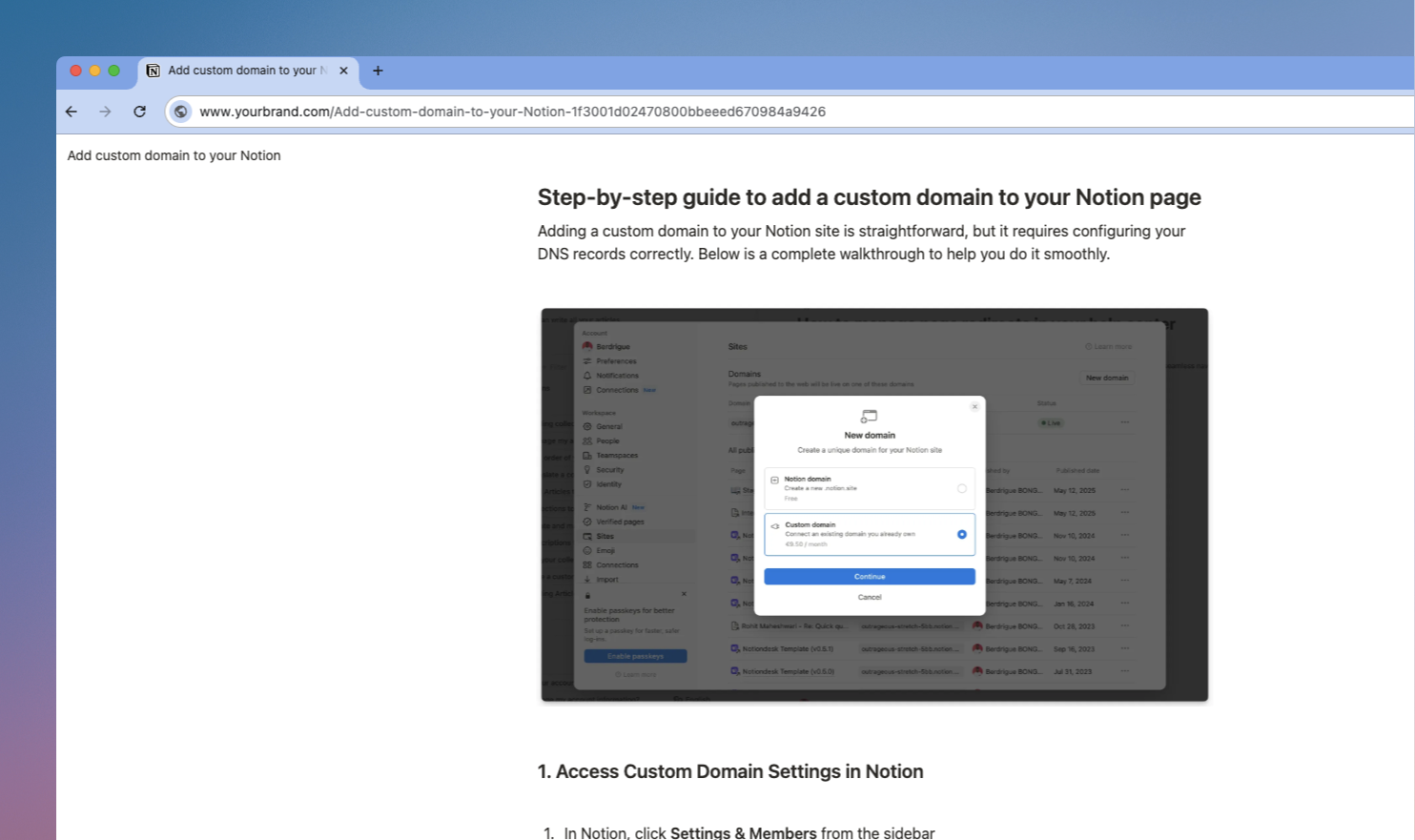
This small change makes a big difference:
- It removes Notion branding from the URL
- It reinforces your personal or company identity
- It gives you full control over how your site appears and feels
Switching to a custom domain turns your Notion page into a more legitimate, trustworthy destination. Especially important if you're using it to showcase your work or represent your business.
Cost of using a custom domain in Notion
To connect a custom domain directly to your Notion page, you'll need to subscribe to Notion's Custom Domain add-on, which costs $10/month available on their Plus, Business, or Enterprise plans.
What's included in this add-on?
- The ability to connect your Notion site to any custom domain you own
- Simple domain verification and DNS configuration options
- HTTPS (SSL certificate) automatically managed
Step-by-step guide to add a custom domain to your Notion page
Adding a custom domain to your Notion site is straightforward, but it requires configuring your DNS records correctly. Below is a complete walkthrough to help you do it smoothly.
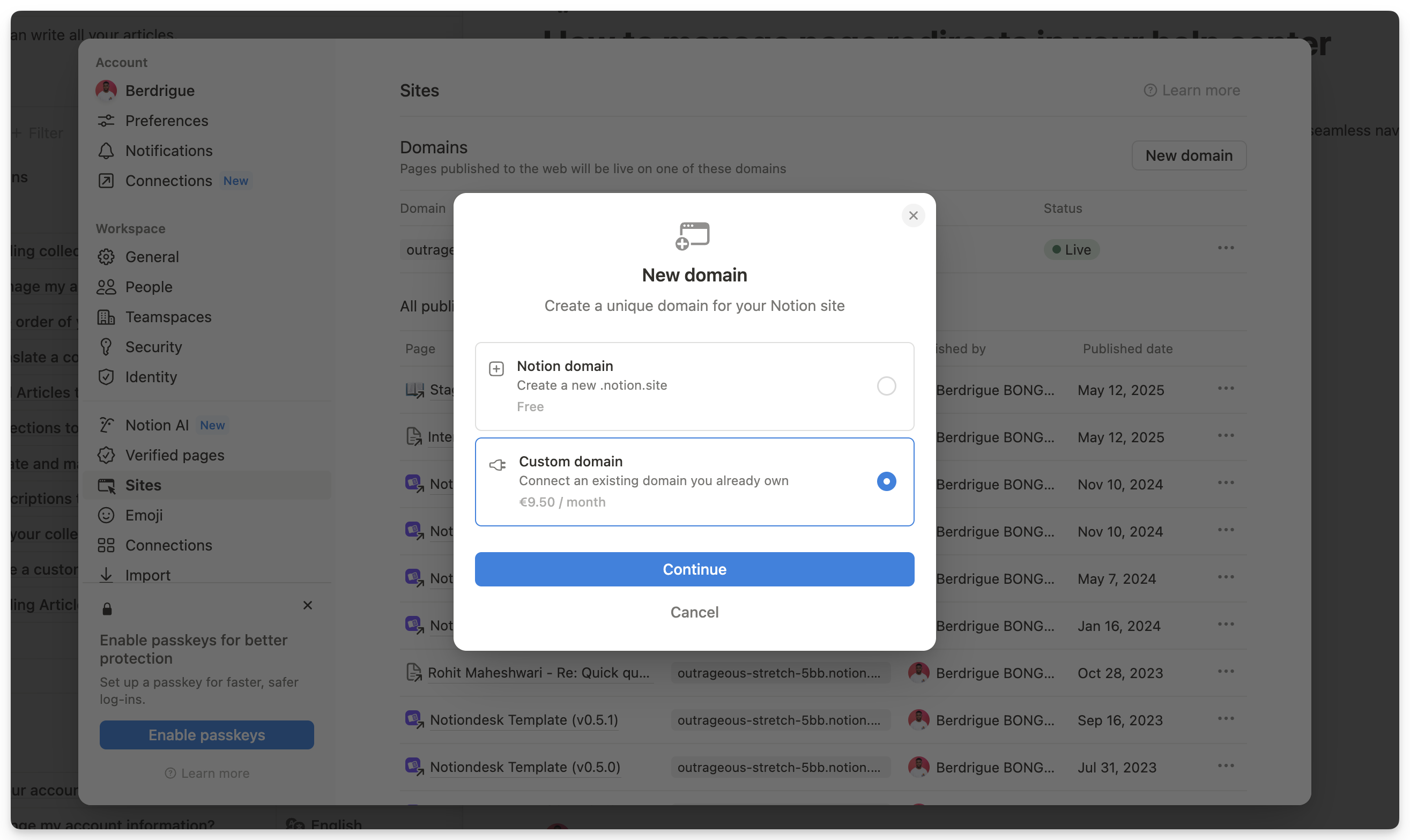
1. Access Custom Domain Settings in Notion
- In Notion, click Settings & Members from the sidebar
- Go to "Settings" > "Sites"
- Next to Domains, click "New domain"
- Select "Custom domain", then click Continue
- Enter your domain name and follow the steps to verify
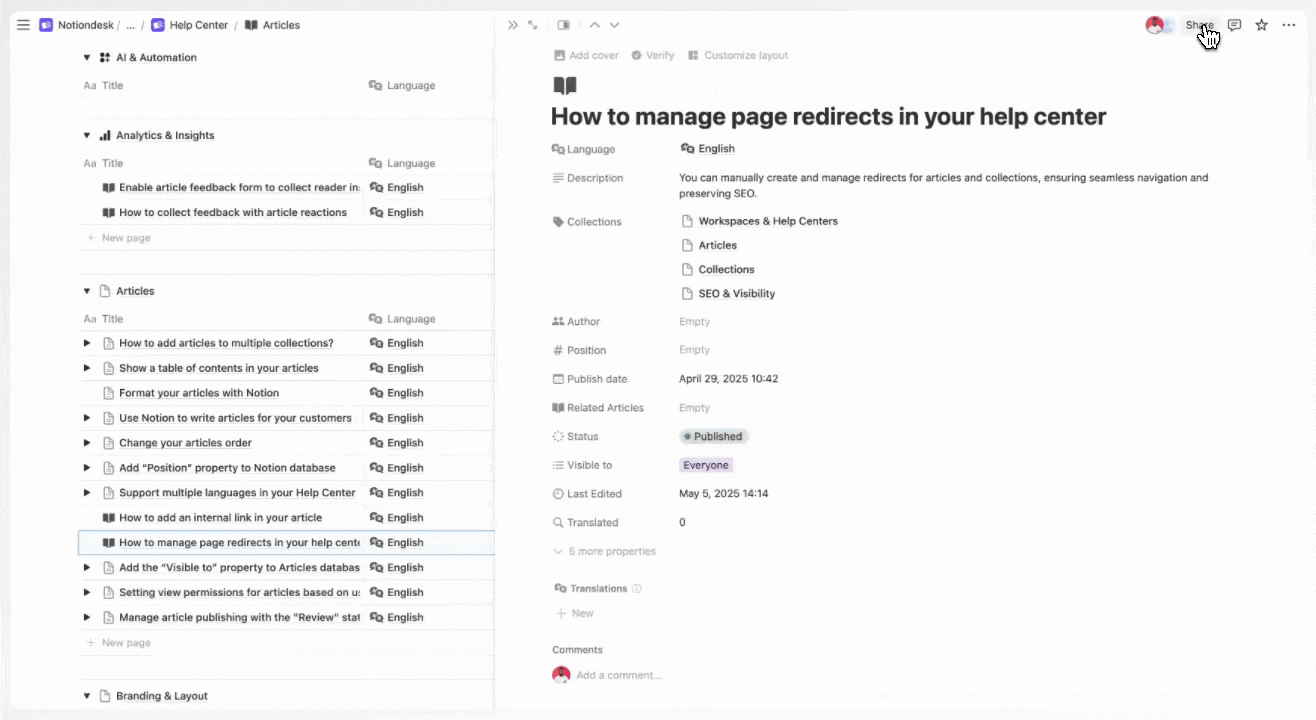
2. Configure DNS settings
Once you've added your custom domain inside Notion, the next step is to update your domain's DNS records. This process varies slightly depending on your domain provider, but the goal is always the same: to tell browsers where your Notion site lives.
What records you need to add
- CNAME Record
- Name:
www(your subdomain here)
- Target:
external.notion.site.
Make sure to include the period at the end of the target, some providers require it for correct resolution
- Name:
- TXT Record
Used to verify ownership of your domain. Notion will provide you with a record name and a record value to paste into your DNS settings
These changes are made in your domain registrar's DNS management panel. Below are guides for popular providers:
3. Verify your domain connection
Once you've added the required DNS records and saved them in your domain provider's dashboard, it's time to complete the setup in Notion.
Return to Notion and open the Custom Domain settings (via Settings > Sites). Then click "Verify" next to your domain.
How long does it take?
DNS propagation can take anywhere from a few minutes to 48 hours, depending on your provider and global DNS cache updates. If you just updated your records, give it at least 30-60 minutes before retrying verification.
You can check if your DNS records are live using tools like:
Search for your www CNAME and TXT records to confirm they've been published correctly.
Turn your Notion content into a complete help center
Connecting a custom domain to your Notion site is a great step toward a more professional online presence. But if you're using Notion to publish structured content like FAQs, product documentation, onboarding guides, or client resources, you might quickly run into the platform's limitations: that's where Notiondesk comes in!
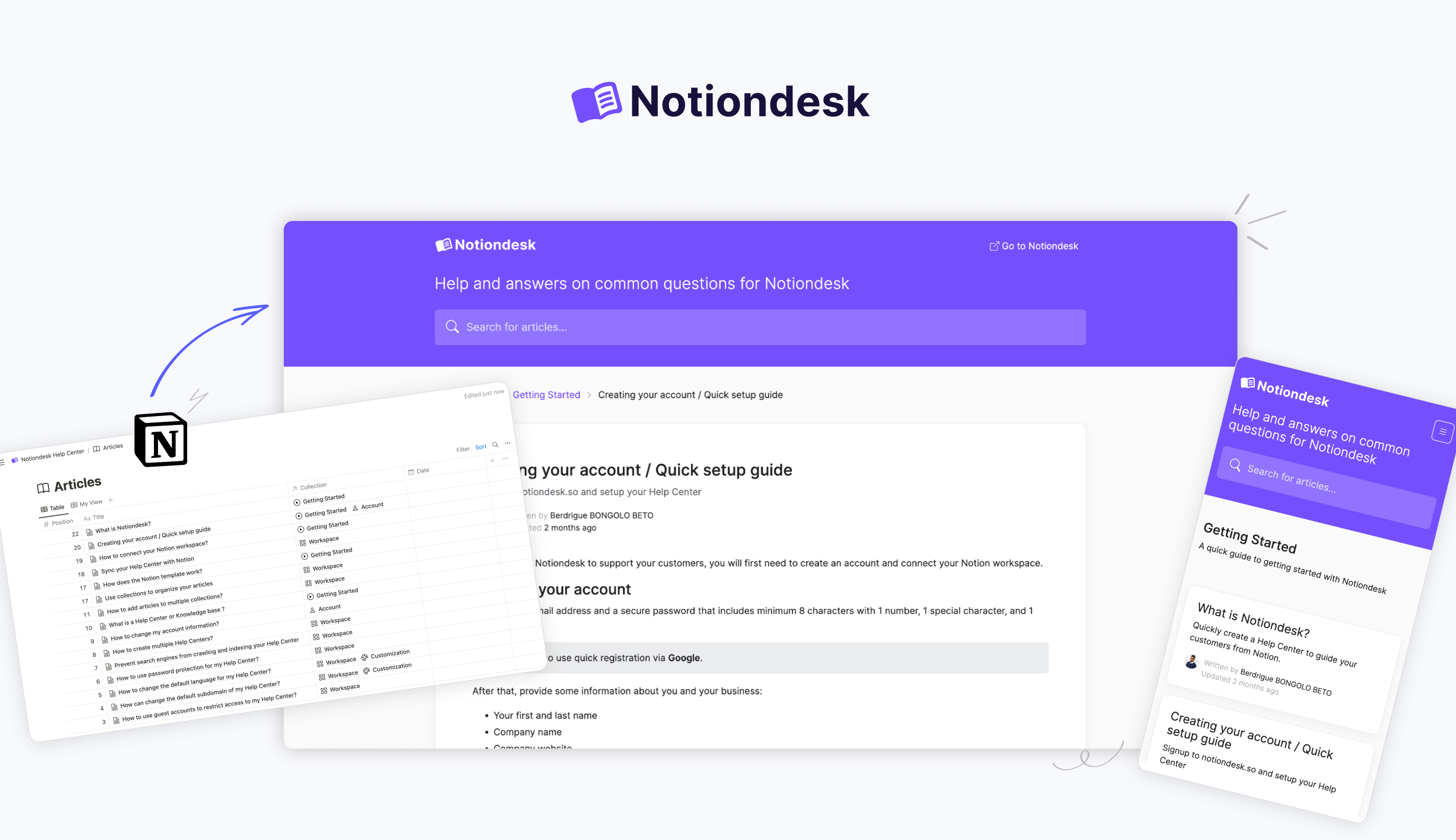
Notiondesk is a tool that extends your Notion setup and transforms it into a fully-featured help center, all without leaving Notion
With Notiondesk, you can:
- Use your custom domain
- Organize content into categories and collections
- Offer a fast, structured search experience
- Customize the look and feel with branding & themes
- Get SEO features and page-level analytics
- Track performance with built-in analytics (views, engagement, countries, search terms)
- Add a smart chatbot trained on your articles
- And more.
Conclusion
Adding a custom domain to your Notion site is a simple yet powerful way to improve your online presence. Whether you're showcasing a portfolio, publishing documentation, or sharing your resume, a branded domain helps you look more professional, builds trust, and improves SEO.
And if you’re publishing docs or help content, tools like Notiondesk let you go even further with structure, branding, search, and more without leaving Notion.
